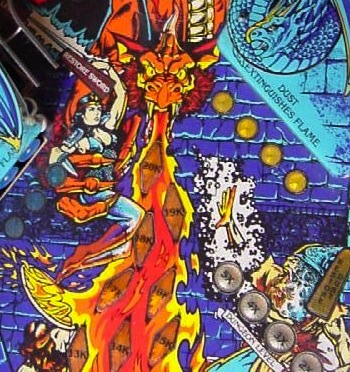A lot of that can be mitigated with a good inventory system. There's plenty of systems for that that work better for that than the fiddly weight system, and with a little more design you can make inventory sizing an interesting choice unto itself (I can pitch my ideas for that if you like) which would also help there.
And the Drama doesn't come from just not having a thing; forgetting something isn't dramatic. (Not that drama is necessarily the point, mind)
The drama comes when you did pack, but then fate intervenes and your pack gets burnt up by a dragon. Then you've got to improvise. (And making that more interesting loops back into what I was alluding to; a dragonhide backpack might not have that issue, but takes more effort to get ahold of than a simple leather bag, and may have other drawbacks)
And ultimately, that planning is desirable with these systems. It means they're directly engaging with the challenges ahead of them. Trivializing them doesn't matter, the point is that they overcame them.
This doesn't mean your system so be so imbalanced that only one player has to bother (it should be a group effort), nor that it can't be more dynamic (as related by the dragon example), but eventually the players deserve their victory, and I'd say they deserve it more for thinking ahead than they do for scrambling for a quick fix in the moment.
This is all fine, but it's also all essentially antithetical to cinematic or heroic play - no "cinematic" RPG is interested in these things - not even stuff like Leverage, which is explicitly about simulating a cinematic situation which relates to planning.
What you're describing is something that's procedural rather than cinematic or heroic. Likewise tales of survival by cutting your own arm off or inching up Everest. That's about being smart and prepared and determined, and it can make for a good story, but it's a very different to "heroic fantasy", which is much more of a "kick down the door"-type deal, and far less about preparation, individual will-to-live, and so on.
Also, a strong case can be made that planning/preparation doesn't work very well in most RPGs, as a fun use of the group's time. Now I am in two minds about that myself, but I can't dismiss that case, and I certainly can't assert that it's necessarily a worthwhile and fun thing for every group, even with improved inventory systems like those you refer to (I definitely agree with your point re: missing an item not being interesting whereas losing a bunch of items is, as long it's not routine).
I could see the concern. If a VTT is being assumed it can make it easy to accept design solutions that would make physical play inefficient.
That was part of the issue with 4e. It isn't nearly as bad at the table as its detractors would have you believe (especially with the fixed HP values) but it also isn't the smoothest experience physically.
And given Matt and co aren't afraid of crunch, that makes the liklihood of these missteps pretty high, so those that can see that would be fairly justified in being concerned.
The mitigating factor here, I think, is that Matt et al are aware of this kind of problem, and don't have a direct financial incentive to push towards VTT-based play as the main mode of play, plus they have an audience who can directly hold them accountable, and will do so. Loudly. They can't afford to piss off MCDM's fans - they rely on Kickstarters and a Patreon. The Patreon could empty out in a minute if the fans got pissed off - it's happened to people before. The next Kickstarter could be a big failure likewise. And obviously 0% of the current MCDM fans use MCDM's VTT, because it doesn't exist yet. So they can't rely on that, and won't be.
That's rather different from WotC. WotC have a strong motive to move towards VTT-based play, and indeed, with 4E, they had an
explicit and detailed plan to do so, which they were kind of open about (the infamous "I want D&D to be like WoW" wasn't about rules or gameplay, it was about it being something you play online and pay a subscription fee for).
Also WotC are investing several times the development budget of 5E in developing their 3D VTT (by their own account - 250 people is straight up hugely more expensive than 30-50 people - 5 or more times, even!), and leaks during the OGL saga suggested WotC were very much planning to move people to an online subscription. Also, the guy in charge of D&D? Of all D&D? He's an ex-Microsoft executive with no game industry experience all (of any kind), but who does have a huge expertise - converting people from purchased products to online subscriptions! I am continue to be amazed so few people picked on the specificity of him being hired. WotC have also been pretty open about how hard they want to monetize the 3D VTT.
So if you're going to worry about games being made into VTT-centric ones, your main concern should be 5E 2024, frankly. It's a bit like a group of men laughing at a guy trying to avoid getting bitten by a small dog missing the tiger that is creeping up behind them.





